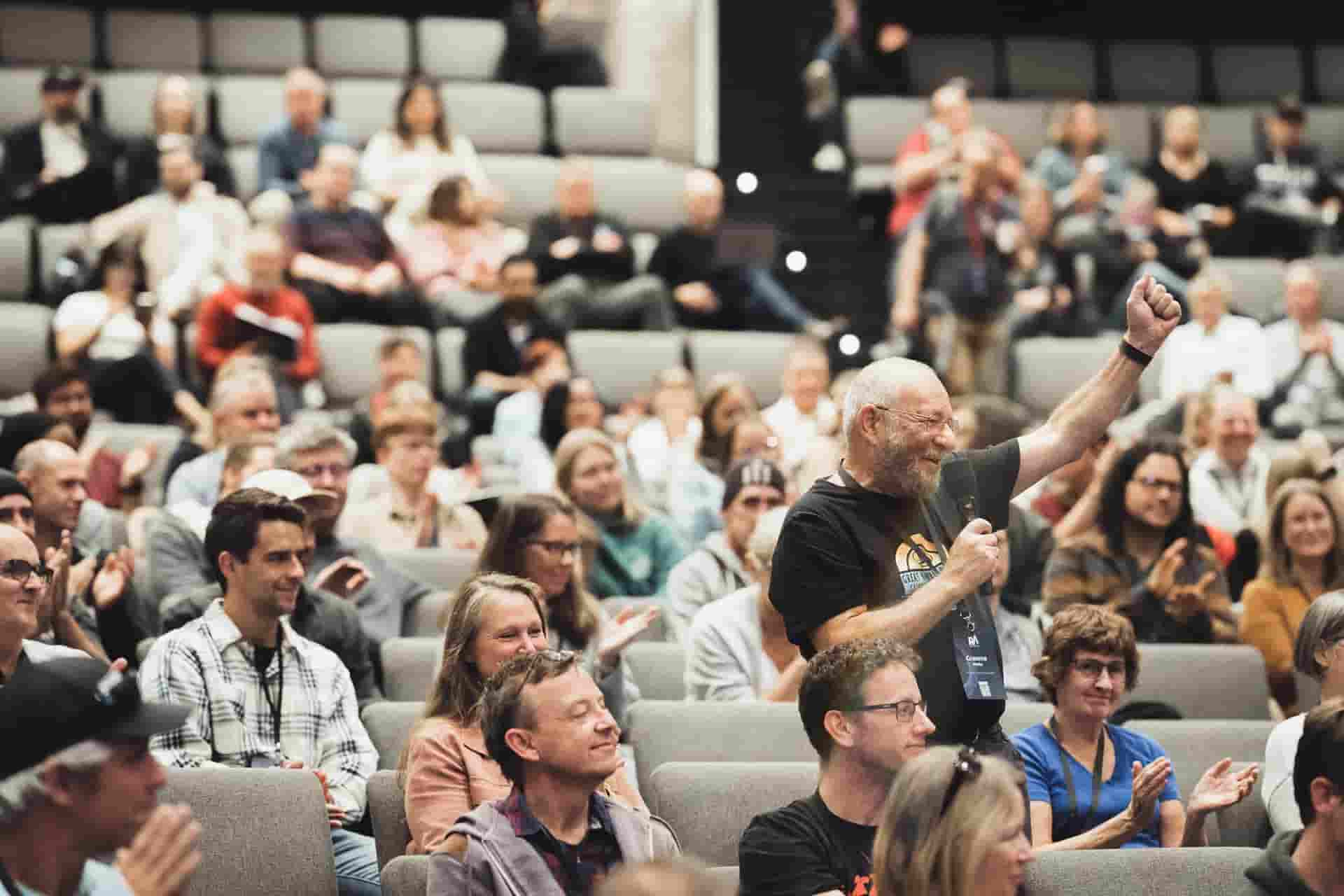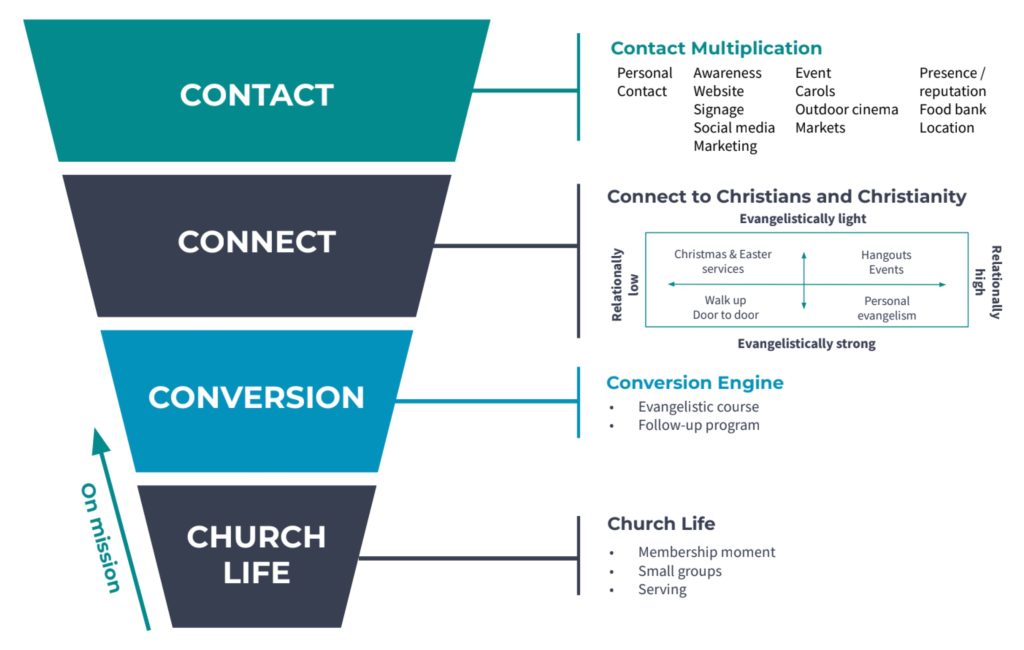The following are excerpts from our Mission ebook. Make sure you download the whole thing, or listen to our Reach Australia Podcast season on mission:
Mission: It Should Be a Priority
Church life is busy. No matter your church size, or how many staff you have, there is a seemingly never-ending list of activities that can occupy the time of a ministry worker. There is never a shortage of things that can be done with, to and for the saints to see them grow in their love for and trust in the Lord Jesus. While most of us have deep biblical convictions about mission and evangelism, matched with an earnest desire to see the lost saved to the glory of God, itʼs very common for actual missional thought and strategy to gradually be pushed to the side. Why? Because itʼs difficult to prioritise people who you canʼt see at the cost of the spiritual needs of the people who are right in front of you.
Yet we want to begin with an audacious statement and challenge: if mission isnʼt first, itʼs last. If the question ʻhow will we see the most people in our region converted to Christ?ʼ is not being answered as a matter of priority in your churchʼs calendar, staffing and vision for the future, then it will quickly slip into insignificance.
All people are sinners against God and stand under His wrath. Jesus died to forgive peopleʼs sins and deal with the wrath of God that they deserve. People can only be saved from this wrath by trusting Christ and turning from their sins to live under His rule in repentance and faith. It is Godʼs great desire and plan that the gospel be preached to all nations, and all Christians and churches are to be about this task. The work of mission is to seek and save the lost through the proclamation of the gospel, which is the power of salvation for all who believe.
We want to challenge you to set your churchʼs vision not by who is there, but who isnʼt there. Who is there is crucially important, because theyʼll be the ones you partner with to reach those who arenʼt there.
Conversions You Need To Be Aware Of
The two most common questions that pastors ask about mission are: ʻhow do I get my church fired up for evangelism?ʼ and ʻhow do we become a church where people become Christians?ʼ These are excellent questions that cut right to the core of what it is to be a church engaged in effective mission.
The answer is: you get people fired up for evangelism by becoming a church where people become Christians, and you become a church where people become Christians by getting people fired up about evangelism.
Effective mission strategy needs to consider 3 major outcomes. We could call these the 3 conversions of mission.
Conversion #1: The Non-Christian’s Conversion to Christ
This must be the primary goal that drives your mission inputs. We desire to see people come into a relationship with God and then deepen their faith in him through Jesus for the rest of their life.
Conversion #2: The Christian’s Conversion to Evangelism
Conversion #3: The Church’s Conversion to Effective Mission Strategy
We often act as if Christians are automatically won to the urgency of evangelism upon conversion to Christ, but this is not the case. We need to continually pour energy into our ministry to the saints to see their conviction for evangelism deepen as they are captured by Godʼs mission.
In order for these three conversions to occur, you need to flip them upside down. In order to see the first conversion occur, you need the second conversion to be constantly taking place.
Mission Heat
ʻMission heatʼ is an expression which refers to the church culture we all seek, where people are truly gripped with a zeal for the glory of God. In a missionally warm church, people long for the salvation of the lost and are subsequently passionate about being involved in this mission. In short, itʼs a church that is ʻfired up for evangelismʼ. You can build and sustain mission heat at your church by developing conviction, confidence and competence.
Conviction
By ʻconvictionʼ weʼre talking about people being captured by Godʼs desire to see people saved. This is the core of mission heat. All churches desperately need their convictions repeatedly stirred by the truths of the Scriptures. Conviction-forming is an essential principle for any church that wants to be serious about Godʼs mission to save the lost.
Confidence
Itʼs possible to be deeply convicted of the need for the proclamation of the gospel and yet still say nothing out of fear. Itʼs not only possible – itʼs common! One of the best remedies for this is confidence. Mission heat builds as the confidence of your congregation builds. You should be seeking to grow confidence in two areas: confidence that the gospel works and confidence that our churchʼs mission strategy works.
Competence
Paul tells us in Ephesians 4 that Jesus has given the church evangelists, among others, in order to equip the saints for works of service. It stands to reason that personal evangelism is among these works of service that Paul expects the church will partake in. In the context of mission, ʻcompetenceʼ refers to the ability of the church to know and tell the gospel.
Mission Funnel
Every church has an approach to evangelism. Some approaches look haphazard and unintentional, some are described as ʻorganic and relationalʼ, and some are highly structured and directive.
Whatever your church is like, youʼve got a process – you may just not know it. In fact, in the language we use around mission, everyone has a mission funnel – itʼs just not always articulated, deliberate or intentional. This often results in churches having good intentions but being ineffective on the ground. So when we talk about a ʻmission funnelʼ weʼre simply referring to a tool to help you consider the way in which your church engages with those who donʼt know Jesus.
The mission funnel refers to the way in which your church engages with non-Christian people. It considers how non-Christian people interact with individuals from the church, as well as the entity of the church. The funnel is separated into 4 distinct sections. Each section needs to be assessed and planned separately in order to best ascertain whatʼs working and whatʼs not working in our missional endeavours.
Contact Multiplication
Contact multiplication is about warmly contacting as many people as possible in order to help them come to know and love Jesus Christ as their Lord and Saviour.
It sits at the very top of the funnel because it represents the largest number of people possible. It is therefore essential that we seek to flood the top of the funnel with as many contacts as possible. The more people the better, as long as the rest of the funnel is functioning effectively to impact them.
Connect to Christians and Christianity
After contact multiplication, the next step in the funnel is connecting people to Christians and Christianity. The more non-Christian people connect with Christians and Christianity, the more likely they are to either want to look into what Christians believe, or respond positively to an invitation. Doing so also allows non-Christian people to feel comfortable asking questions and builds plausibility around the claims of the Bible. We want to aid our people in ʻmixing their worldsʼ together – encouraging them to bring their non-Christian contacts into the realm of their Christian life. It is therefore extremely helpful for churches to build into their mission plan opportunities for Christians to invite their friends to easy-invitation events. Below are several ways this can happen.
Conversion Engine
The conversion engine is best understood as the ministry in which you hope to see most people converted. This is not the only place people will become Christians and this should not be the only type of evangelism that your church undertakes. However, it is critical that you give a lot of thought to how you hope to see the most amount of non-Christian people (in this case, adults) hear the gospel and, under God, be converted.
What's Next?
When a church focuses its energy and resources on developing mission heat and a mission funnel, this often provides the best possibility of seeing sustained mission fruit. As individuals within your church partner together with you and with one another, then you can expect to see non-Christians enter into the sphere of your church and hopefully into the kingdom of God.
So…what should you do next?
Start with the end in mind. The most important thing you can do is to begin to work on your conversion engine. Choose or improve your evangelistic course, then insert it into the calendar.
Thereʼs no point having excellent contact and connect events if thereʼs no conversion engine for people to come to. Simultaneously, work hard on thinking through how best to welcome and connect with non-Christians at your Sunday gathering.
Other Resources
Read the Mission ebook from Dave Jensen
Listen to the Reach Australia Podcast Season on Mission:
21.2 Conviction and Confidence: Banging the Mission Drum
21.3 Competence and Connections
Dave Jensen was the Mission’s Pastor at EV Church on the Central Coast. He is now the Assistant Director at Evangelism and New Churches.




